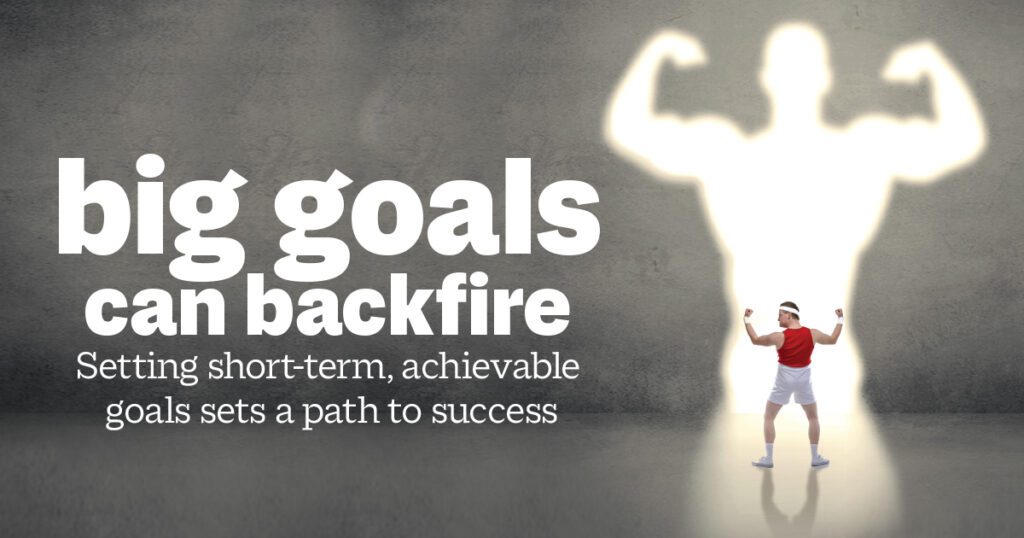09 Oct 2023 Big goals can backfire
By Sarah Martinez, Co-manager of the North Little Rock Athletic Club
Have you ever failed to meet a goal? Maybe you wanted to start a new workout program, build a habit of meal-prepping, or lose weight but you just didn’t seem to have the motivation to keep it up. Are you just not as mentally strong as those other people?

The real secret is not about just pressing on and feeling terrible; it’s about reframing the way you think about yourself and, most importantly, the way you think about your goals.
First, let’s talk about goals. We all tend to be experts at looking way off in the future and setting big goals like “I want to buy a house” or “I want to lose 50 pounds.” What we often fail to realize is that one goal contains many smaller goals inside of it. The large end goal may be months or years away, and who would want to grind away for years without feeling like they’ve accomplished anything?
We have a much higher rate of success when we focus on the goals that we can achieve in a relatively short period of time. So, if your long-term goal is weight loss, goals like “I am going to raise my goal to 1,000 steps per day this week,” or “I am going to eat one more serving of fruit and vegetables every day this week” are going to be much more likely to set you up for success. These goals are within reach, and you can accomplish a real measurable step toward that big goal every day!
Why is it important to be able to see those successes in the short term? Well, it all plays into how we see ourselves. It’s typically not enjoyable to think negatively of ourselves for long periods of time. Most people will begin to avoid activities or interactions that make them feel like a failure after only a few weeks.

We can work to avoid this pitfall in two important ways: by setting up successes on the way and by making sure our motivation isn’t powered by shame.
Those successes should come at least weekly and they’re even better daily. The more often we feel that sense of achievement and accomplishment, the more it helps to boost our motivation to achieve our long-term goal. This means setting small goals but also making sure they are goals you are confident you can and will achieve. If you don’t think you’re ready for a small goal, find a way to make it smaller or pick a different focus for the time being.
Lastly, we need to make sure our larger sense of motivation isn’t driven by shame. If you want to buy a house, there are lots of positive reasons for that: having good space for your family, building long-term equity, etc. Likewise, there are lots of positive reasons to work on your health and fitness: to be able to enjoy activities with your children, to be able to stay strong and healthy through retirement, to get strong enough to run a race, climb a mountain, etc. Why focus on a shame-based motivation that requires you to feel bad about yourself for a long period of time when there are so many exciting and fun reasons to get healthy?
Most of all, remember to have fun with the process. Just like when you were a kid learning how to ride a bike, you are going to fail and that is OK! Making changes in your life requires learning new skills and building new habits. Give yourself room to fall and know you can always get up and try again. Remember how great it feels when that hard work begins to feel effortless?
Now, get out there and set that first small goal!











